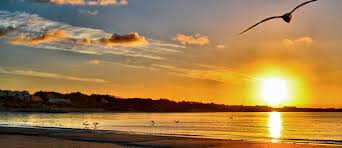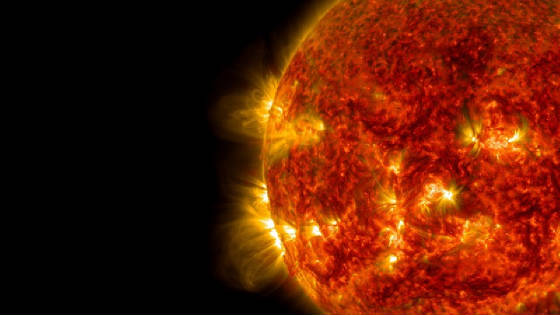|
|
EL VIAJERO El "Voyager 1" es una sonda espacial lanzada por la NASA el 5 de septiembre de 1977. Como parte del programa para estudiar el Sistema Solar exterior. El Voyager 1 se lanzó 16 días después de su gemela, la Voyager 2. Habiendo operado durante 43 años, 3 meses y 2 días a partir del 8 de diciembre de 2020, la nave espacial aún se comunica con la Red de Espacio Profundo para recibir comandos de rutina y transmitir datos a la Tierra. La NASA proporciona datos en tiempo real de distancia y velocidad. A una distancia de 150.6 AU (22.5 mil millones de km; 14.0 mil millones de millas) de la Tierra, el 17 de septiembre de 2020, es el objeto creado por el hombre más distante de la Tierra.
El Viajero, Voyager está a miles de millones de millas de la Tierra después de volar sobre por Júpiter, Saturno, Neptuno y Urano en su camino hacia la misteriosa extensión entre las estrellas. En ese infinito ha detectado explosiones repentinas de rayos cósmicos que emanan de erupciones solares que arrojan partículas a un millón de millas por hora. "Estamos descubriendo realmente que cuando el Viajero finalmente abandone el sistema solar, entrará, por primera vez, en un tramo de espacio que no sigue las reglas del sol. Allí, el sol se convertirá en una estrella más en el cielo nocturno de otra persona. Su calor o gravedad no se registrarán, pero su brillo irradiará durante años luz. Marina Karen Periodista - Te Atlantis Paso Milky, Washington nov. 2020
Sin abandonar aún el mundo, el Viajero trazado en mi imaginación de transeúnte de la vida en pos de la paz para mi tiempo y el tiempo de los hijos de nuestros hijos, no podría ir más lejos ni querer hallar mi propia burbuja heliosfera donde existir definitivamente entre las estrellas, convertido en supernova stellae novae («estrellas nuevas»), para mostrar el mañana de nuestra misión en el Universo.
Hoy, al finalizar un año que nos hizo ver y sentir lo temporalidad de nuestro paso por la tierra, deseo que, como sobrevivientes, hasta ahora, de la feroz pandemia del Covid19, pensemos y actuemos como VIAJEROS, y que ese sea el tema del Concierto de la Alborada 2021, nuestro y el de nuestros Semilleros de Juventud Siglo XXI. "No es imposible, pero es muy difícil para los plasmas solares cruzar ese límite... más allá del extremo más alejado de nuestro propio planeta, en el espacio interestelar"", escribió Bill Kurth, científico investigador de la Universidad de Iowa Y Coautor De Los Nuevos Hallazgos del Voyager. Una idea que parece ser absurda en términos de posibilidades de lograrlo materialmente pero no imposible en la creación de nuevas ideas, apertura de nuevos horizontes, proyección de bondades redentoras de la vida del hombre, del infante que no ha nacido, del niño, la niña de hoy, los adolescentes, los adultos de mañana, viajeros, los Voyager, de proyección del vuelo a bordo de la nave de nuestra imaginación. |
Cuando se lanzó el Voyager
en 1977, la idea de hacer ciencia tan lejos de nuestro propio planeta, en el espacio interestelar, era una idea lejana, Nadie
en la Nasa creyó que iríamos más allá nuestros planetas y lunas vecinos y bellas imágenes.
No fue así. EL VIAJERO siguió, se perdió muchas veces de los radares, la última vez durante siete
meses en el 2019 hasta su reaparición en octubre de este año, como si quisiera hacerse presente en medio de
la gran tragedia humana que estamos viviendo para recordarnos que somos Viajeros del universo y que un virus no puede detenernos. Son 20 horas las que se necesitan para que los mensajes as entre el Viajero y los ingenieros de la Nasa puedan comunicarse en cada sentido, Curiosamente, son nano segundos lo que pasan para que este mensaje vaya y venga entre nosotros. Por ahora, el Viajero todavía llama a casa desde lo desconocido. POR AHORA, nosotros podemos todavía atender al llamado que nos hace un Zoom, o un portal, a una página web, y pronto, a un encuentro en persona donde podamos hablar de nuestro viaje y nos propongamos apoyar su continuidad. Los
ingenieros esperan que la nave espacial se quede en silencio en algún momento de la próxima década; también
esperan que seguirá viajando en la inmensidad del espacio a 5 mil millones de años a partir de ahora, cuando
nuestro sol muera en un proceso dramático que envolverá a todo nuestro planeta. Para entonces, el Viajero probablemente
seguirán atravesando las galaxias. "En algún momento, podría ser la única evidencia restante
de que la tierra existió alguna vez"
Para entonces, nosotros, precursores del viaje de las generaciones futuras, habremos conquistado el infinito de nuestras realizaciones y nuestra nave viajera alcanzado la inmortalidad. ¡BIENVENIDOS AL TEMA "VIAJEROS" Concierto de la Alborada 2021!" Con afecto, gratitud y admiración Joseph Berolo (Sus aportes son bienvenidos Fecha de cierre Dicimebre 31 2020 Gracias,  |
CONCIERTO DE LA ALBORADA 2021
|
THE VOYAGER Voyager
1 is a space probe launched by NASA on September 5, 1977. As part of the program to study the outer Solar System. Voyager
1 launched for 16 days after its twin, Voyager 2. The spacecraft still communicates with the Deep Space Network to receive
commands from routine and transmit data to Earth. NASA provides real-time distance and speed data. At a distance of 150.6
AU (22.5 billion km; 14.0 billion miles) from Earth, , it is the most distant man-made object from Earth.
The Traveler, Voyager is billions of miles from Earth after flying over Jupiter, Saturn, Neptune and Uranus on its way to the mysterious expanse between the stars. At that infinity he has detected sudden bursts of cosmic rays emanating from solar flares that spew particles at a million miles per hour. "We are really discovering that when the Traveler finally leaves the solar system, he will enter, for the first time, a stretch of space that does not follow the rules of the sun. There, the sun will become another star in someone else's night sky. Its heat or gravity will not be recorded, but its brightness will radiate for light years Marina Karen Journalist - Te Atlantis Paso Milky, Washington DIC 5, 2020  |
Not yet out out of the world., the Voyager
traced in my imagination as a passer-by of life in pursuit of peace for my time and the time of our children's children, I
could not go further or want to find my own heliosphere bubble where to exist definitively among the stars, turned into a
supernova stellae novae ("new stars"), to see the tomorrow of our mission in the Universe.
Today, at the end of a year that made us see and feel the temporality of our earthly passage , I wish to proclaim and ask, that, as survivors, until now, of the fierce Covid19 pandemic, to think and act as VOYAGERS , and that it be the theme of the Concert at Dawn 2021, ours and of Seeds of Youth XXI Century, "It is not impossible, but it is very difficult for solar plasmas to cross that boundary ... beyond the far end of our own planet, in interstellar space," wrote Bill Kurth, University of Iowa Research Scientist and Co-Author. From Voyager's New Finds. An idea that seems to be absurd in terms of the possibilities of achieving it materially, but not impossible in the creation of new ideas, opening of new horizons, projection of redemptive benefits for mankind, the unborn infant , the boys, the girls Today's teenagers, tomorrow's adults, Voyagers, aboard the ship of our imagination. Not yet out of our world, the Voyager traced in my imagination as a passer-by of life in
pursuit of peace for my time and the time of our children's children, I could not go further or want to find my own heliosphere
bubble where to exist among the stars, turned into a supernova stellae novae ("new stars"), to see the tomorrow
of our mission in the Universe. Today,
at the end of a year that made us see and feel the temporality of our earthly passage, I wish to proclaim and ask, that, as
survivors, until now, of the fierce Covid19 pandemic, to think and act as VOYAGERS, and that it be the theme of the Concert
at Dawn 2021, ours and of Seeds of Youth XXI Century. "It is not impossible, but it is very difficult for solar plasmas
to cross that boundary ... beyond the far end of our own planet, in interstellar space," wrote Bill Kurth, University
of Iowa Research Scientist and Co-Author. From Voyager's New Finds. An idea that seems to be absurd in terms of the possibilities of achieving it materially,
but not impossible in the creation of new ideas, the opening of new horizons, projection of redemptive benefits for mankind,
the unborn infant, the boys, the girls Today's teenagers, tomorrow's adults, Voyagers, aboard the ship of our imagination. When Voyager was launched in 1977, the idea
of conducting science so far from our own planet, in interstellar space, was a distant one. No one at NASA believed that we
would go beyond our neighboring planets and moons just to take beautiful images. It was not so. THE VOYAGER continued, lost
many times from the radars, the last, for seven months in 2019 until his reappearance in October of this year as if wanted
to be present in the midst of our tragedy to remind us that we are travelers of the universe and that a virus cannot stop
us. It takes 20
hours for messages between the Traveler and NASA engineers to be able to communicate in each direction. Curiously, it takes
nano seconds for this message to come and go between us. For now, the Voyager still calls home from the unknown. FOR NOW, we can still respond toa call to attend a
Zoom meeting, , or a portal to feed a page, and soon, WE HOPE. to a meeting in person where we can talk about our journey
and our proposals to support its continuity. Engineers expect that the spacecraft will go silent sometime in the
next decade; they also hope that it will continue to travel in the vastness of space, 5 billion years from now when our sun
dies in a dramatic process that will engulf our entire planet. By then, the Voyager will likely continue to traverse the galaxies. "At some point,
it might be the only remaining evidence that the earth ever existed" By then, we, forerunners of the voyage of future
generations, will have conquered the infinity of our achievements and our traveling ship achieved immortality.WELCOME TO THE
THEME "VOYAGERS " Dawn Concert 2021! "With affection, gratitude and admiration Joseph Berolo (Your contributions are welcome. Deadline.
December 31, 2020 Thank you
|

